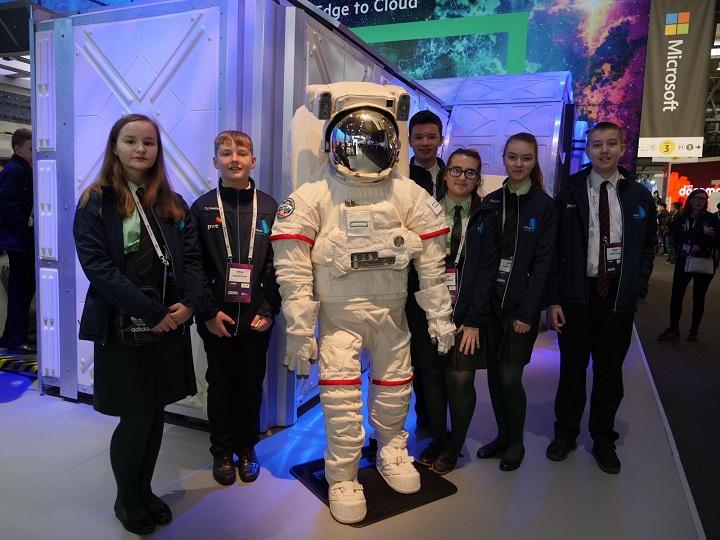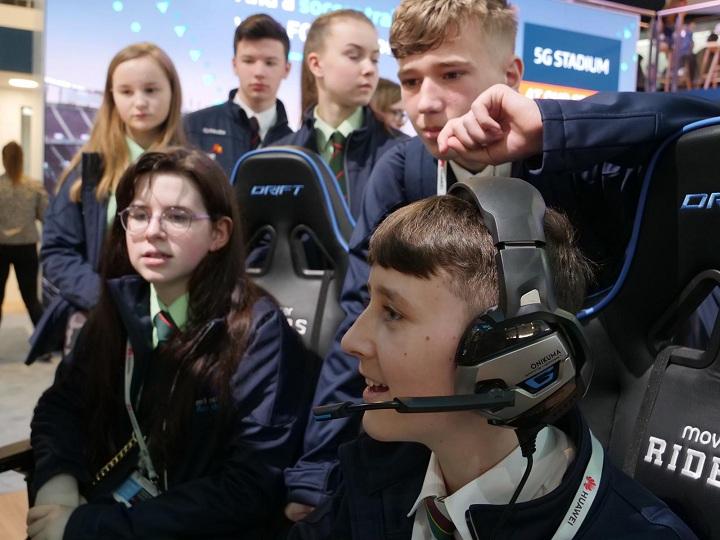
mTech.Academy has expanded in the now second year of its tech-centric curriculum programme, reaching 525 students and educators across Northern Ireland.
It was founded by experts from the education and technology communities, Diane Morrow and Michael O’Hara. Diane has more than a decade of teaching experience, delivering A Level, GCSE Business Studies and careers education, information, advice and guidance. Michael has more than 30 years’ experience at leading technology organisations. Most recently he spent 10 years as Chief Marketing Officer for the GSMA, and was responsible for their flagship event, Mobile World Congress, which grew from 47,000 to 108,000 attendees during his tenure.
Sync NI sat down with both founders to find out more about the background of mTech.Academy and what the future holds.
How exactly did the mTech.Academy come to be what it is today?
Diane: I left the classroom in 2017, because an opportunity came up to lead Generation Innovation, which is a Catalyst programme to increase young people’s awareness of future careers in innovation. I took that opportunity. During that time, I met Michael – he was the chief marketing officer for the GSMA, which organises Mobile World Congress Barcelona, one of the largest tech events in the world. I asked him if we would be able to take students to Mobile World Congress, something that was never really done, because it’s a business-to-business show and students are not generally allowed in. We got so much more than we ever thought out of that one trip with those 11 students. Nothing was too much trouble for the young people or their teachers and Michael took them on a personal tour round Mobile World Congress.
I gained a better understanding of advanced technologies such as 5G, the Internet of Things and so much more after our session with Michael at the Innovation City at Mobile World Congress. More importantly, we got to see how technology can be applied in many different industries and how it can enable many different career opportunities.
The show really was an amazing experience for all of us and leaving there, I just felt there was really an opportunity to do something incredible for our young people based on the fact that he's had an incredible career coming out of here. How do we get more of those people involved with our school system? At that point it was just an idea to keep taking kids to an event. Coming from an education background, I knew that as a teacher the more you do with young people, they are still going back into the classroom to the same teachers and the same curriculum. So how do we actually bring all other stakeholders in education that involves our teachers, our career leaders and our head teachers? From that, we really started to go forward.
Michael: I thought I was signing up to take kids to Barcelona every year! I still remember Diane calling me saying Grant Thornton has agreed to do this leadership training for all of the middle teachers. It became a whole new entity. What I've learned is working with Diane is that she's looking for a complete transformation of the schools. It's not just helping students on something, it's helping the middle teachers, it's helping the head teachers, and it's actually engaging with the parents as well, so they all understand what the opportunities are. It’s become a truly holistic programme, which I think is why it's worked so well and which is why we’ve gotten great results.

You’ve lived in the states for 20 years Michael. Do you think the skills gap there in terms of technology reflects the skills gap so many employers here in Northern Ireland are noticing?
Michael: I see the same problem. My kids are 19, and 16, they still very much are taught to pass the exams; how to get a good grade, how to get to college, how to get a degree, and then worry about it afterwards. I think what's great about what we're trying to do here, which is give people the real-world skills they need for the workplace. There's a film we love called “Most Likely to Succeed”, which is shot in a Californian school. There’s this amazing scene where one of the teachers asks students, “do you want me to teach you to be successful in the workplace? Or do you want me to teach you to pass the exams?” They all say “pass the exams” and they don't want to be out of that comfort group. So we're trying to address that problem. They're trying to address it in the US. Diane certainly had some like interaction with similar people in the US. We're trying to solve the same problem, which is giving people the real skills they need.
Diane: I think the challenge is when we look at the Northern Ireland curriculum; it has three things; to help young people develop as employees, to help young people develop our systems within the economy, and also things like the preservation of the environment. We still have a system that's destination-based. We have a destination at 11 and we have a destination at GCSE. We have a destination at A-level, and then we're supposed to have a destination of the end of university. We need to best prepare people for their jobs in a different way, with their skills, so that their skill potential is actually assessed in a different way. It’s not about tearing apart what we have in the curriculum. It's just looking at what we deliver and how we can do that in a different format.

mTech.Academy is now going into its second year, and you’ve expanded so much reaching across 15 schools in Northern Ireland now. What’s your goal for the future right now?
Michael: We were pleased to start with 10 schools and to expand that to 15 in our second year. I would love to get to that point where every young person in Northern Ireland has access to this type of opportunity. When I was at the GSMA, we worked on an initiative where we got every young person in Catalonia through a programme like this, up to 130,000 young people a year. That then had a really positive impact for the economy, and created a culture of entrepreneurship and start-ups. So ultimately, we want to get there. It's tricky at the moment with the funding challenges in education in Northern Ireland. There are a number of things that are obviously going on in the schools, and the lack of government make things hard, but our goal is to just to keep expanding and keep getting to more and more young people.
Diane: The key thing for us is, when you do anything in education, unless it’s having an impact on young people on their learning journey, or teachers out there developing their expertise, which links back into young people, you need to be able to measure that impact. I think that's why I really enjoy working with Michael and the mTech.Academy programme. We are able to look at where students came from before they started with us to where they are now. This includes the journey that the teachers and the parents are on as well. So we can measure that impact in the short term and hopefully, see the results over the long term as well.
